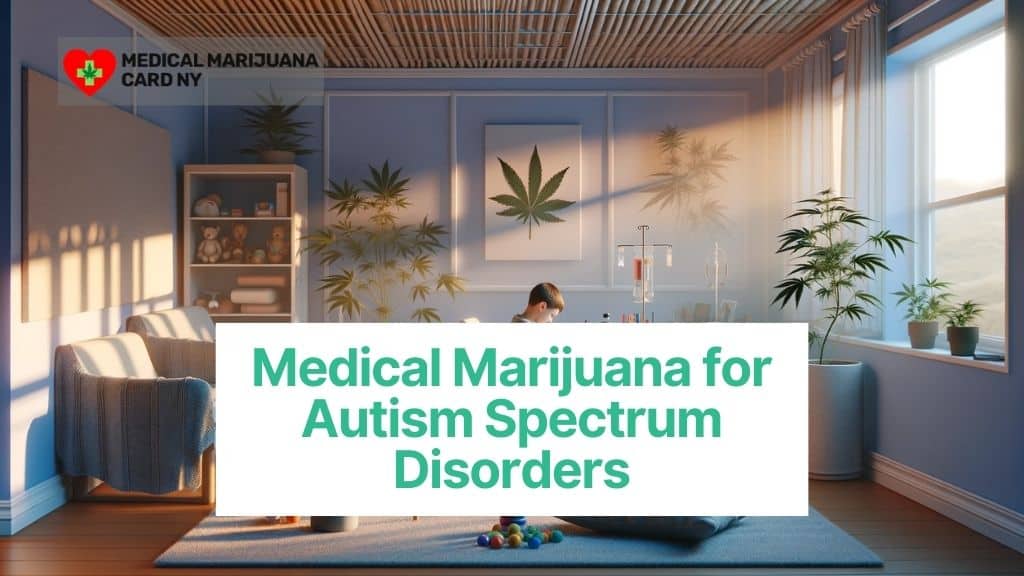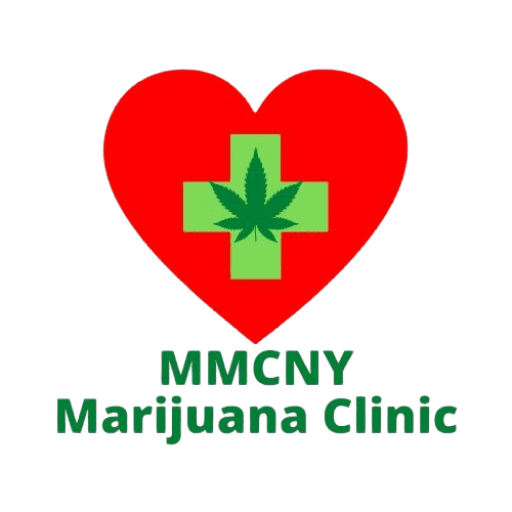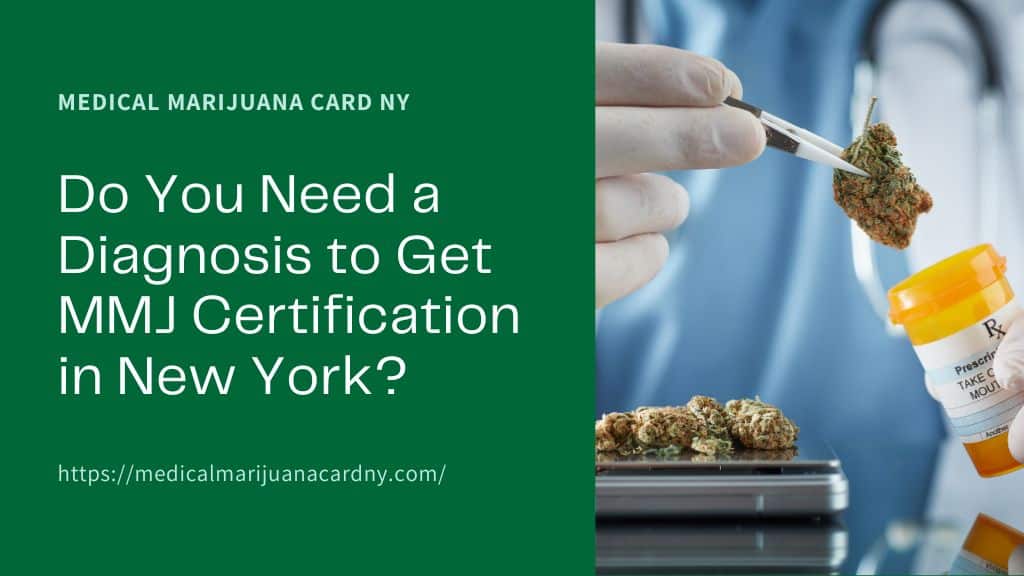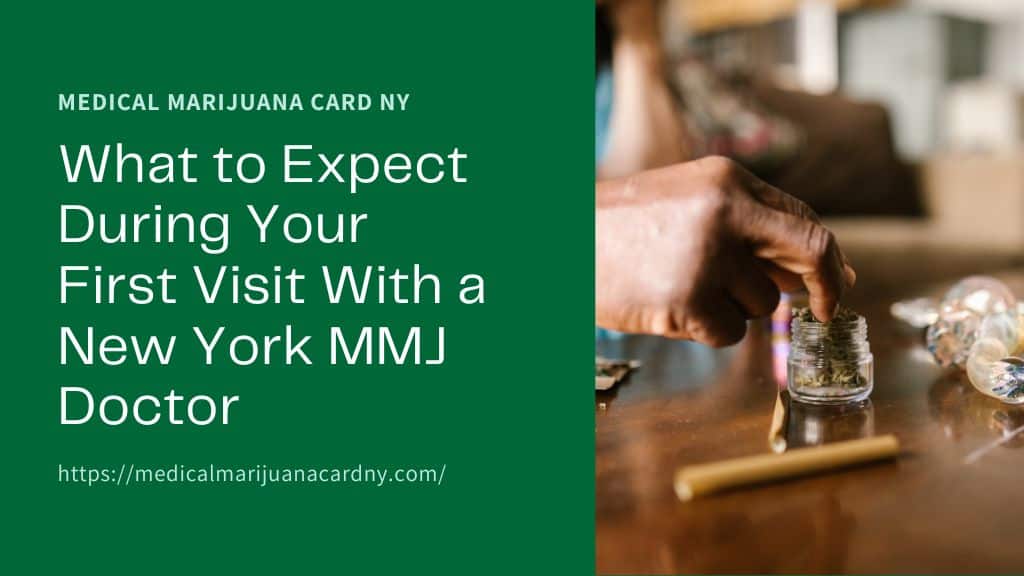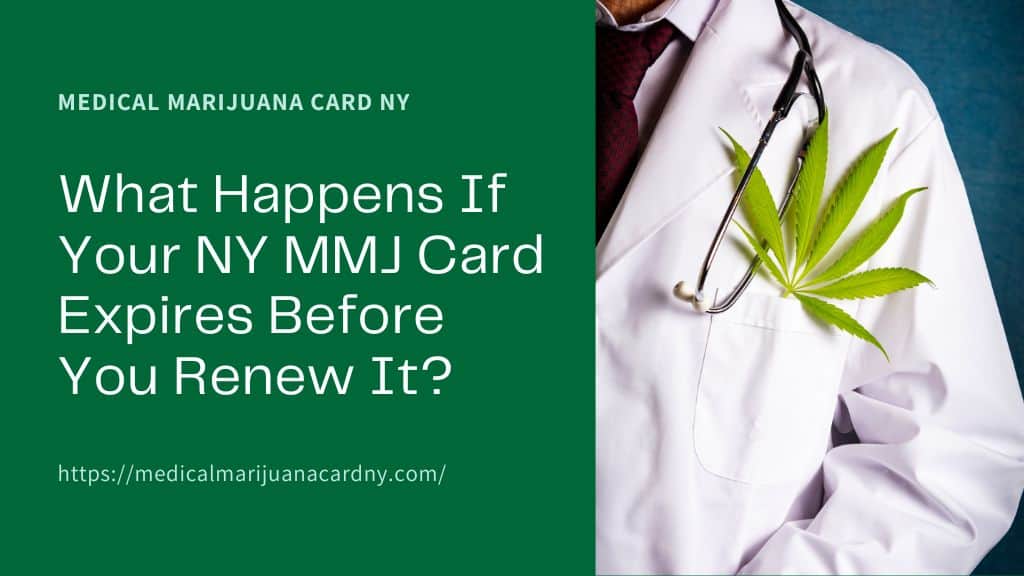Discover the potential of Medical Marijuana for Autism Spectrum Disorders in our comprehensive blog, focusing on the unique landscape of New York. As autism continues to impact many families, understanding alternative treatments like medical marijuana becomes crucial. This blog delves into how medical marijuana can be a game-changer for individuals with Autism Spectrum Disorders, examining its benefits, risks, and the legal framework in New York.
We uncover real stories from patients and caregivers, providing a deeper insight into their experiences. Additionally, we guide you through the process of obtaining medical marijuana recommendations in New York, ensuring you’re well-informed every step of the way.
Whether you’re a patient, a caregiver, or a healthcare professional, this blog offers valuable knowledge and perspectives. Stay informed about this evolving topic and explore whether medical marijuana could be a viable option for managing autism spectrum disorders. Dive into our blog for an enlightening read!
Table of Contents
ToggleUnderstanding Autism Spectrum Disorders
What Are Autism Spectrum Disorders?
Autism Spectrum Disorders (ASD) encompass a range of developmental disorders characterized by challenges in social interactions, communication, and repetitive behaviors. The spectrum indicates that the severity and combination of symptoms can vary widely among individuals. ASDs often result in lifelong disability, influencing social relationships, play, academic skills, and other areas of life.
How Common Are Autism Spectrum Disorders in New York?
ASD is a prevalent condition, affecting communities across New York. The Centers for Disease Control and Prevention (CDC) estimates that, on average, 1 in 68 children in the United States have an ASD. This statistic reflects a broader national trend observed in various studies. A particular study conducted by Albert Einstein College of Medicine noted a higher prevalence of ASD diagnoses in school districts with significant proportions of Black and Hispanic students, especially in urban areas like New York City and Albany.
What Are the Primary Challenges Faced by Individuals with Autism Spectrum Disorders?
Individuals with ASD face a multitude of challenges. The most significant are in the realms of social interaction, communication, and behavior. Many experience difficulties in understanding and engaging in social norms and cues, which can affect their ability to form relationships. Communication challenges range from complete nonverbal communication to nuanced difficulties in understanding and using language effectively.
Additionally, repetitive behaviors and restricted interests are common, which can limit the ability to adapt to new situations or engage in a broader range of activities. Early detection and intervention have been shown to improve outcomes, emphasizing the importance of awareness and support for those affected by ASD.
Medical Marijuana: An Overview
What Is Medical Marijuana?
Medical marijuana, derived from the Cannabis sativa or Cannabis indica plants, is primarily known for containing over 100 cannabinoids, with THC (tetrahydrocannabinol) and CBD (cannabidiol) being the most prominent. THC is recognized for its psychoactive properties, which produce the “high” associated with marijuana, whereas CBD is known for its potential therapeutic effects without the psychoactive aspect. The use of medical marijuana is to address various medical conditions and symptoms, with the forms of administration including pills, liquids, oils, powders, and dried leaves.
Definition and Key Components
The medical application of cannabis (medical marijuana) leverages the plant’s chemical compounds, primarily cannabinoids. The therapeutic potential of these compounds is grounded in their interaction with the body’s endocannabinoid system (ECS), which plays a crucial role in regulating a variety of physiological processes. The ECS comprises endocannabinoids produced by the body, cannabinoid receptors (CB1 and CB2), and enzymes.
THC, for instance, is a CB1 agonist, which means it binds to the CB1 receptors primarily found in the brain, resulting in various effects depending on factors like dosage and the individual’s sensitivity to cannabis. CBD, conversely, does not bind as readily to cannabinoid receptors but influences other receptors in the body, indicating its potential in a wide range of therapeutic applications.
How Does Medical Marijuana Work Biologically?
The biological workings of medical marijuana revolve around the ECS, a regulatory system that maintains the body’s homeostasis. The ECS involves endocannabinoids (like anandamide and 2-AG), cannabinoid receptors, and enzymes. The endocannabinoids are akin to cannabinoids found in cannabis but are naturally produced by the body. These endocannabinoids activate cannabinoid receptors, triggering specific bodily responses.
This system plays a role in managing inflammation, pain, mood, sleep, body temperature, immune function, digestion, and stress response. Research into the ECS has expanded understanding of the potential therapeutic applications of cannabis, focusing on THC and CBD due to their respective interactions with the ECS. The entourage effect, a concept suggesting that cannabinoids and terpenes in cannabis might work synergistically, is also a significant aspect of the therapeutic potential of medical marijuana.
Medical Marijuana and Autism Spectrum Disorders
How Can Medical Marijuana Benefit Those with Autism Spectrum Disorders?
Medical marijuana’s potential benefits for individuals with Autism Spectrum Disorders (ASD) center around symptom management. Recent research has started to shed light on the ways cannabis might be beneficial in addressing certain ASD symptoms. For instance, studies have suggested that components of medical marijuana, like cannabidiol (CBD), could potentially help in managing behavioral problems common in ASD, such as aggression and self-injurious behavior.
Notably, the endocannabinoid system, which is affected by compounds in cannabis, has been identified as playing a role in ASD. A Stanford University study revealed that anandamide, a naturally occurring endocannabinoid, was found in lower concentrations in children with ASD. Given that anandamide and THC (a compound in cannabis) share similar effects, researchers are investigating the therapeutic potential of THC in treating autism.
Moreover, CBD’s impact on the oxytocin-driven anandamide signaling system, crucial for social behavior, is being explored as a potential corrective for ASD-related deficiencies. The concept of the ‘entourage effect’ – the synergistic interaction of cannabinoids and terpenes – is also considered significant in enhancing the therapeutic value of medical marijuana for ASD.
What Are the Risks and Considerations in Using Medical Marijuana for Autism Spectrum Disorders?
When considering medical marijuana for ASD, it’s essential to weigh potential risks and contraindications. The use of THC, particularly in children, is approached cautiously due to the developing nature of the child’s brain. There are concerns about the potential for adverse effects, especially given that the precise impacts of cannabis compounds on young, developing brains are not fully understood.
Furthermore, while medical marijuana might offer symptom relief for some individuals with ASD, it’s crucial to note that it is not a treatment for the core symptoms of autism. Existing medications for ASD primarily target comorbid symptoms such as anxiety or aggressive behavior, and the same applies to medical marijuana.
The risks associated with medical cannabis include potential side effects, which need to be carefully considered against the benefits. As research in this area is still evolving, the safety, efficacy, and long-term effects of medical marijuana for ASD are areas of ongoing study. As such, it’s crucial for patients and families to consult with healthcare professionals and consider all available information before opting for this treatment approach.
The discussion about medical marijuana for ASD is part of a broader, evolving conversation about the role of cannabis in treating various medical conditions. As research continues, more definitive answers and guidelines regarding its use for ASD are expected to emerge.
Legal and Ethical Considerations for Medical Marijuana in New York
Legal Statuses of Medical Marijuana in New York
In New York, medical marijuana has been legalized under the Compassionate Care Act (CCA) since 2014. The regulation and oversight of the state’s medical marijuana program (MMP) were initially under the New York Department of Health, but with the enactment of the Marijuana Regulation and Taxation Act (MRTA), the medical marijuana program is expected to transition to the Office of Cannabis Management.
This transition is part of a broader framework established by the MRTA, which aims to regulate cannabis use while focusing on public health, social justice, and equitable economic development. The MRTA, enacted on March 31, 2021, has significantly reformed cannabis law in New York, shifting the approach from law enforcement to public health.
Regulation of Medical Marijuana for Autism Spectrum Disorders
In New York, medical marijuana can be recommended by a range of healthcare providers who are registered and licensed to prescribe controlled substances. This includes physicians, physician assistants, nurse practitioners, podiatrists, dentists, and midwives. These healthcare providers must complete a course on medical cannabis to be eligible to certify patients for medical marijuana use. Once certified, patients are automatically registered with the Medical Cannabis Program, and their certification contains a registry ID which, along with a government-issued photo ID, can be used to purchase medical cannabis from licensed dispensaries in the state.
Patients, including minors, who are deemed to have a qualifying condition by a certifying healthcare provider can be eligible for medical marijuana use. In the case of minors, they must access medical marijuana through a designated caregiver. The caregiver must be approved by the Office of Cannabis Management and accompany the patient to the healthcare provider’s appointment.
Healthcare providers issue patient certifications via the Medical Cannabis Data Management System (MCDMS) after completing the required course. They can certify patients immediately upon fulfilling these requirements. The process is facilitated by the Office of Cannabis Management, which has approved specific providers to offer the required courses for healthcare professionals.
Interestingly, as of March 20, 2023, New York replaced medical marijuana cards with medical practitioner certifications for patients registering in its Medical Cannabis Program. Patients’ medical cannabis certifications now contain registry ID numbers, which, along with a valid government-issued ID, are all that’s needed to purchase medical cannabis at New York dispensaries. There’s no need for a separate medical marijuana card.
Patient and Caregiver Perspectives
Experiences of Patients and Caregivers Using Medical Marijuana for Autism Spectrum Disorders in New York
In New York, patients and caregivers have reported varied experiences with medical marijuana for managing Autism Spectrum Disorders (ASD). The effectiveness of medical marijuana in treating symptoms associated with ASD, such as behavioral issues and communication difficulties, is observed by some caregivers and patients. However, these experiences are highly individual and vary from case to case. The state acknowledges the significant impact of ASD, affecting 1 in 150 children, more than pediatric cancer, diabetes, and AIDS combined, which has led to the consideration of various treatment options including medical marijuana.
Medical Professionals’ Views on Medical Marijuana for Autism Spectrum Disorders
Medical professionals in New York have a cautious approach towards using medical marijuana for ASD. Due to the complexity of ASD and the varying symptoms it presents, professionals often emphasize personalized and intensive treatment programs. While some see potential in medical marijuana, especially for managing specific behavioral symptoms, the overall stance remains cautious, underscoring the need for further research and careful consideration of each patient’s unique needs and circumstances.
Accessing Medical Marijuana in New York
Where Can Patients Obtain Medical Marijuana?
Patients in New York can obtain medical marijuana from licensed dispensaries across the state. These dispensaries are equipped with pharmacists to assist patients in selecting appropriate products and provide guidance on use and possible interactions with other medications.
Eligibility for Medical Marijuana Prescriptions
New York does not have a list of qualified medical conditions for medical marijuana use. Instead, registered healthcare providers, who have completed a required course on medical cannabis, decide whether patients can use medical marijuana as a treatment. Patients, including minors through caregivers, can obtain a medical marijuana certification from these providers, which automatically registers them with the state’s Medical Cannabis Program and allows them to purchase medical marijuana products.
Conclusion
Medical marijuana for Autism Spectrum Disorders (ASD) in New York represents a nuanced and evolving area of treatment. With no specific qualifying conditions for its use, healthcare providers have the discretion to recommend medical marijuana based on individual patient assessments. The treatment, primarily aimed at managing symptoms associated with ASD, must be approached with an understanding of its potential benefits and risks.
It’s crucial for patients and caregivers to be well-informed and to consult with qualified healthcare professionals to navigate the recommendation process effectively and to ensure safe and appropriate use of medical marijuana for ASD.
Resources
https://www.cdc.gov/ncbddd/autism/data.html
https://www.health.ny.gov/community/infants_children/early_intervention/autism/
https://www.sciencedirect.com/science/article/abs/pii/S1071909120300449
https://www.liebertpub.com/doi/abs/10.1089/can.2020.0154
https://www.sciencedirect.com/science/article/abs/pii/S0278584618304445
https://www.magonlinelibrary.com/doi/abs/10.12968/bjnn.2022.18.5.232

